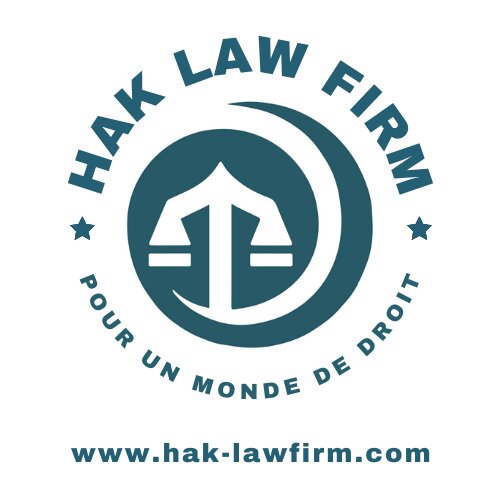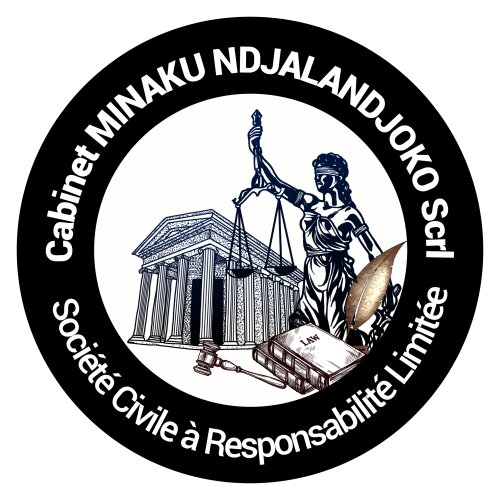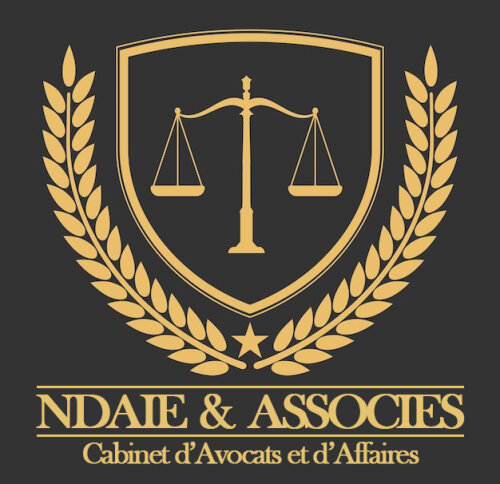Best Legal Document Lawyers in DR Congo
Share your needs with us, get contacted by law firms.
Free. Takes 2 min.
Or refine your search by selecting a city:
List of the best lawyers in DR Congo
About Legal Document Law in DR Congo
The Democratic Republic of the Congo (DRC) has a complex legal system that draws from both civil law traditions and customary law practices. Legal Document Law in the DRC encompasses various types of documentation including contracts, business documents, property deeds, and personal records like birth and marriage certificates. Legal documents play a crucial role in validating and formalizing agreements and transactions in both personal and professional spheres.
The legal system in the DRC aims to ensure that all legal documents are authentic and legally binding, adhering to the procedural norms established by the government. However, due to the complexity and diversity of the legal frameworks involved, navigating Legal Document Law in DRC can be challenging without proper legal guidance.
Why You May Need a Lawyer
There are several instances where consulting a lawyer may be beneficial for dealing with legal documents in the DRC:
- Drafting Legal Documents: Whether it’s a contract, lease agreement, or will, a lawyer can ensure that your documents comply with local laws and protect your interests.
- Document Verification: A lawyer can verify the authenticity and legality of documents, ensuring they meet the necessary criteria for legitimacy.
- Litigation and Dispute Resolution: If a dispute arises regarding a document’s interpretation or validity, a lawyer can provide expert advice and representation.
- Immigration and Citizenship Documents: Navigating the legal requirements for residency, citizenship, and work permits often requires professional legal support.
- Business Law Compliance: Ensuring your business documents meet regulatory standards is crucial, and legal advice can help you avoid pitfalls.
Local Laws Overview
The legal framework in the DRC is influenced by a combination of statutory laws enacted by the government and customary laws that vary by region and community. Here are some key aspects relevant to legal documents:
- Validation Procedures: Legal documents often require notarization or approval from relevant governmental bodies to be considered valid.
- Language Requirements: Documents may need to be in one of the official languages, French or one of the recognized national languages, depending on the context.
- Form and Content: There are specific formal requirements for different types of documents, including precise wording and formatting to ensure enforceability.
- Registration: Some documents, such as property deeds, must be registered with appropriate administrative bodies to be legally binding.
Frequently Asked Questions
What is the process for notarizing a document in the DRC?
An individual must visit a licensed notary public in the DRC. The notary verifies the identity of the parties involved, ensures comprehension, and affirms the document’s legality before adding an official seal.
Do contracts need to be written in French?
While French is the official language for legal documents, contracts may also be drafted in a recognized national language, provided all parties agree and understand the content.
Is it mandatory to register a will?
To ensure executability, it is highly recommended to register a will with the local administration office or notary who will keep the document secure and legally recognized.
How can I authenticate a foreign document for use in the DRC?
Foreign documents must be authenticated by an Apostille or legalized by the DRC's consulate in the country of origin, and then recognized by the local authorities in the DRC.
What are the requirements for a power of attorney document?
A power of attorney must clearly state the extent of granted authority, be signed by the involved parties, and should be notarized for it to be valid in legal proceedings.
Can legal documents be signed digitally in the DRC?
Currently, digital signatures are not widely recognized for legal purposes in the DRC, and wet signatures are generally required.
What recourse do I have if a contract is breached?
If a contract is breached, one should seek legal advice to understand the remedies available through litigation or alternative dispute resolution methods in accordance with the contract terms and local law.
How do I transfer property ownership legally?
Property transfer requires a sale contract, which must be notarized, and the transfer must be recorded in the land registry to be legally recognized.
Are verbal agreements legally binding?
While verbal agreements can sometimes be binding, it is safer and more enforceable to have written documents, especially for significant transactions.
How can I obtain my legal identification documents in the DRC?
Legal identification documents, such as birth certificates and national IDs, can be obtained through the local administrative offices responsible for civil registry services.
Additional Resources
The following resources can provide additional support and guidance:
- Ministry of Justice and Human Rights: The ministry oversees the legal system and can provide information on legal document requirements and procedures.
- Notary Offices: Licensed notaries are crucial for authenticating and certifying legal documents.
- Barreau du Congo (Bar Association): A professional body that maintains a directory of licensed lawyers and can offer assistance in finding legal representation.
- Local Municipal Offices: These offices handle civil registrations and provide services related to public legal documents.
Next Steps
If you require legal assistance with documents in the DRC, consider these steps:
- Identify the type of legal document you are dealing with and gather all relevant information.
- Consult with a licensed legal professional who specializes in the area of law relevant to your document.
- Ensure all legal documents are complete, legible, and in accordance with DRC law before proceeding.
- Follow up with the appropriate governmental or administrative bodies for authentications, registrations, or recordings.
- Maintain copies of all legal documents for your records and ensure they are stored securely.
Lawzana helps you find the best lawyers and law firms in DR Congo through a curated and pre-screened list of qualified legal professionals. Our platform offers rankings and detailed profiles of attorneys and law firms, allowing you to compare based on practice areas, including Legal Document, experience, and client feedback.
Each profile includes a description of the firm's areas of practice, client reviews, team members and partners, year of establishment, spoken languages, office locations, contact information, social media presence, and any published articles or resources. Most firms on our platform speak English and are experienced in both local and international legal matters.
Get a quote from top-rated law firms in DR Congo — quickly, securely, and without unnecessary hassle.
Disclaimer:
The information provided on this page is for general informational purposes only and does not constitute legal advice. While we strive to ensure the accuracy and relevance of the content, legal information may change over time, and interpretations of the law can vary. You should always consult with a qualified legal professional for advice specific to your situation.
We disclaim all liability for actions taken or not taken based on the content of this page. If you believe any information is incorrect or outdated, please contact us, and we will review and update it where appropriate.
Browse legal document law firms by city in DR Congo
Refine your search by selecting a city.
















